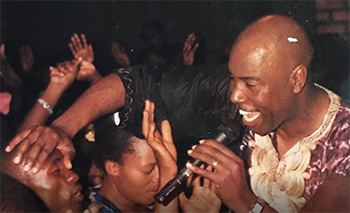
By Michael Ashcraft —
To many observers, it appeared foolhardy to send such a fruitful worker to such a hopeless nation. A lot of church planters in the Christian Fellowship Ministries, following prevailing wisdom, looked to plant churches in resource-rich England and South Africa.
But Pastor Harold Warner didn’t flinch when he launched firebrand preacher Alvin Smith into Sierra Leone in 1989. He had heard from God. And nearly three decades later, the results are dumbfounding.
The original church in Freetown has exploded to 80 churches. The nation that once was classified as the second poorest in the world now has planted churches in Liberia, Guinea, Gambia, Senegal, Togo, Benin, Congo, Burkino Fasa and Ivory Coast.
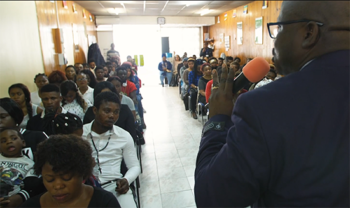
They have even sent three missionaries to Europe.
“To take people, to take young men and women from one of the poorest countries in the world and (for God to) say, ‘I’m going to shape and I’m going to fashion them because they are going to accomplish my purpose not only in their own nation but also beyond the boundaries,’ is one of the greatest privileges of life,” says Warner in a 2018 conference video. “I just sit back and chuckle because this has to be God.”
Not even the African pastors could believe how God would use them when, as young men, they converted to Christ in a ramshackle school building with no lights where they listened intently to Pastor Smith preach his heart.
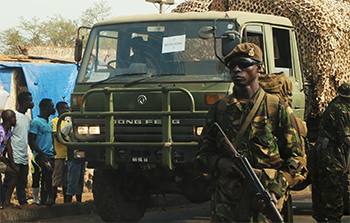
“Pastor Smith was instilling into our spirit that we were going to all the world to preach the gospel. In the minds of many of us, we were like, ‘This is an impossible dream,’” says Edward Saffa, who took over the headquarter church in Freetown. “All of us were from nothing — nothing.”
Sierra Leone was a diamond rich nation racked by government corruption and successive civil wars. The average life expectancy was into the 30s, and people ate only one meal a day. The worst kind of malaria wreaked havoc on the population, and the guerrillas chopped off limbs of civilians to sow terror.
That’s the milieu into which Alvin Smith, a retired US Air Force helicopter pilot, injected himself with his wife Renee.
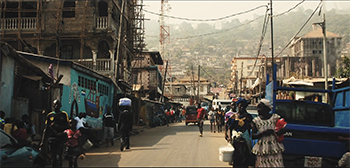
“We owe something to Pastor Smith who left America. He came in the time during the war. That was a lot of sacrifice,” says Aruna Bangura, now pastoring in Marseille, France. “When people are too educated, they become logical when it comes to serving God. But for us, we were just explosive. We want to go to church everyday. Whenever it is time to go to church, we were running to go to church. We were coming from distance.
“I can still remember that old rugged, dirty building. All the windows were battered. We were using candles. But there was a life coming out of that building. That’s how God works. God likes to do things the way man cannot do it.”
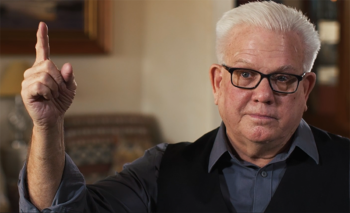
The young men who attended Smith’s sermons often lacked adequate clothes, but they didn’t lack zeal. Or maybe it was the absence of material distractions that helped them to center all their attention on God.
They had nothing, so they had nothing to lose when they put their faith in God. Pastor Smith challenged the youth to get married, regardless of their financial situation. Some of the leaders today set up cardboard partitions in their parents’ living rooms to consummate their wedding.
“In the early days of Pastor Smith, we were in some kind of military boot camp. Pastor Smith was just phenomenal. We just enjoyed Jesus with him. He made us feel worth,” says Desmond Bell, also now pastoring in Marseille. “He gave his life. He poured everything in us to realize how important, how valuable we are for God to use us. We feel Heaven. He was like a father. He was like an elder brother.”
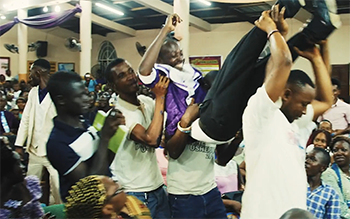
The Christian Fellowship Ministries based in Prescott, Arizona makes church planting its major focus. While many churches prioritize in-house ministry, CFM throws disproportionate resources at world evangelism. At last tally, there are 2,500 churches in 114 nations.
No one can ever tell where revival will break out. Churches spread across Mexico and in the Philippines. Expert church planters expected optimal results in nations where the indicators were positive. But the revival in West Africa was more than just counter-intuitive; it defied all logic.
“When I saw the zeal of Pastor Smith, the fire in his spirit, I was captivated. I was really really touched. There was something in me that was driving in that direction,” Edward Saffa says. “I gave my all to it.”
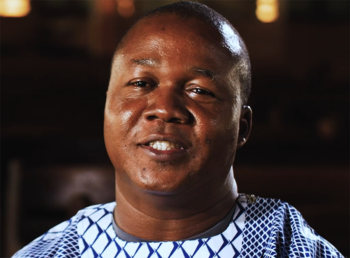
But if the wildfire in West Africa was attention-getting, the sending of African missionaries to Europe really raised eyebrows. Bell, now in France, was himself a doubter. It was Europe that sent missionaries to Africa; it is Europe that has resources. How did it occur to anyone to reverse the missionary flow and turn on its head all logic?
“I was struggling about, is this the will of God? An African coming to Europe as a missionary?” Bells says. “ It was actually eccentric. It looked abnormal.”
But after completing reams of paperwork, learning French and assimilating to the culture, Bell and his wife today have a thriving church in one of the nations most resistant to the Gospel. “Today I believe there is hope for this nation,” he says.
The Africans have learned to gamble on Jesus. These pastors, again and again, put their lives on the line to believe God for revival into whatever nation they go. They have learned to risk in favor of God is better than the alternative.
“The danger of not pursuing God’s purpose is regret,” Bell says. “You will live with regret. You will miss something. Until you answer to the purpose of God, you will not know how important it is.”
Michael Ashcraft is planting one the CFM churches in Van Nuys.




If you don’t do what God calls you to, you will live in regret.
“Until you answer the purpose of God, you will not know how important it is.”
Comments are closed.